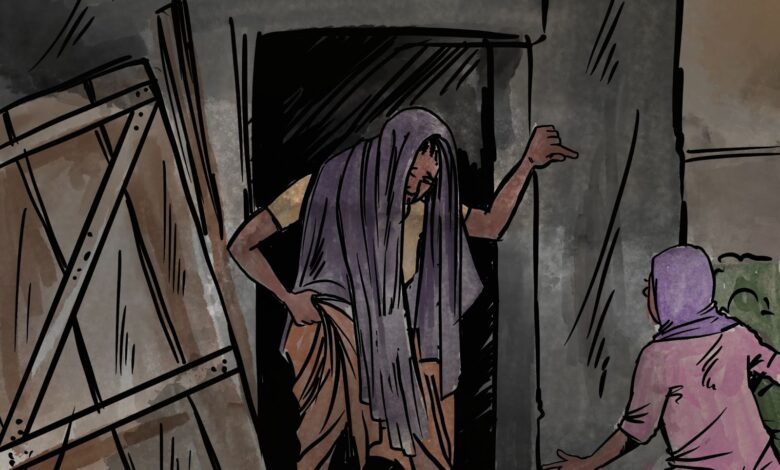UN Urges Swift Action to Protect Women Amid Worsening Crisis in DR Congo
UN Women says the worsening crisis in eastern DRC exposes women and girls to heightened risks of sexual violence, exploitation, and displacement.

The humanitarian crisis in the eastern Democratic Republic of the Congo (DRC) has reached alarming levels, with women and girls disproportionately affected by escalating violence, UN Women has warned.
Speaking at a press briefing at the Palais des Nations on Tuesday, Feb. 4, Sofia Calltorp, Chief of Humanitarian Action at the UN Women and Director of the Geneva Office, expressed deep concern over the worsening situation.
“The renewed escalation of violence has resulted in a devastating humanitarian crisis, disproportionately affecting women and girls. As the clashes unfold in a country that has endured prolonged instability, women and girls are bearing the brunt of both direct and indirect consequences, with their rights, safety, and dignity increasingly under threat,” Calltorp said.
The resurgence of armed conflict, particularly the occupation of Goma, the capital of North Kivu, by the Match 23 Movement (M23) terror group on Jan. 27, has forced thousands of civilians to flee their homes. Women and girls now face heightened risks of sexual violence, exploitation, and abuse, as well as severe disruptions to humanitarian aid and essential services.
The scale of sexual violence in the region is overwhelming. Médecins Sans Frontières (MSF) reported treating 25,166 survivors of sexual violence in 2023 alone, 91 per cent of them displaced women and minors from North Kivu. The second quarter of 2024 saw an even sharper rise, with MSF assisting 55,500 survivors. Given the widespread underreporting of sexual violence, the true extent of the crisis is likely far greater.
A recent assessment by UN Women found that sexual and gender-based violence is becoming a routine occurrence in conflict-affected areas. The organisation therefore, called for immediate action to combat sexual and gender-based violence, ensure accountability for perpetrators, and provide comprehensive support for survivors, including medical, legal, and psychosocial assistance.
“Strengthen prevention, protection, and response mechanisms, ensuring accountability for perpetrators and comprehensive support—medical, legal, and psychosocial—for survivors,” Calltorp said.
UN Women is also pushing for a gender-sensitive approach to humanitarian aid, ensuring women actively participate in aid programming and distribution. “Ensure women in all their diversity equally participate in the whole cycle of aid programming and distribution, ensuring their specific needs for sexual and reproductive health and social services, as well as protection, are met,” she added.
Despite their critical role in responding to the crisis, local women’s rights and women-led organisations remain severely underfunded. “Focus on rebuilding women’s resilience through education, economic empowerment, leadership opportunities, and addressing structural inequalities,” Calltorp stressed.
The conflict in eastern DRC has raged for decades, but recent escalations have made the humanitarian situation even more precarious. Political efforts to establish peace remain fragile, with regional initiatives struggling to rein in armed groups that continue to control key territories.
The humanitarian community in the DRC will require $2.54 billion in 2025 to assist 11 million people, yet only 41 per cent of that amount has been secured. The funding gap is severely limiting access to essential services, including healthcare, education, and food assistance.
Calltorp urged the international community to prioritise women’s needs in the response efforts. “Our collective efforts must be focused on ensuring that the voices and needs of women are central to the response and recovery process,” she said.
As violence escalates and humanitarian needs grow, the fate of millions of women and girls in eastern DRC hangs in the balance.
The humanitarian crisis in eastern Democratic Republic of Congo has intensified, significantly impacting women and girls. The resurgence of armed conflict, notably the occupation of Goma by the M23 group, has exacerbated violence and displacement, heightening risks of sexual violence and disrupting essential services. UN Women emphasizes the urgent need for strategies to combat gender-based violence and support survivors with comprehensive assistance.
Despite ongoing peace efforts, political instability and limited funding hamper humanitarian response, with only 41% of the required $2.54 billion secured for 2025. UN Women stresses the need for women's active participation in aid programs and prioritizing their needs, calling for increased support for local women-led organizations to address structural inequalities and bolster resilience.
Support Our Journalism
There are millions of ordinary people affected by conflict in Africa whose stories are missing in the mainstream media. HumAngle is determined to tell those challenging and under-reported stories, hoping that the people impacted by these conflicts will find the safety and security they deserve.
To ensure that we continue to provide public service coverage, we have a small favour to ask you. We want you to be part of our journalistic endeavour by contributing a token to us.
Your donation will further promote a robust, free, and independent media.
Donate HereStay Closer To The Stories That Matter




